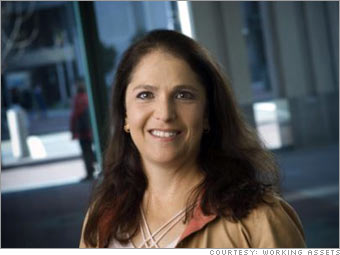Dare to Be a Social Entrepreneur
If you look at companies that have successfully developed a business that has elements of social responsibility, you see that each one had good business reasons for doing it. Look at Starbucks. What is the business reason for the way it treats employees? If they stay longer or are more loyal and work harder at being a better representative of the company, it's good for business. An excellent personnel policy leads to more customer loyalty and therefore, one would probably surmise, higher sales. Employee loyalty and community support can make it easier to get approval for things like putting in a new store or a new building. Why does Target seem to get less resistance than Wal-Mart when it enters a community? We know that Target gives a lot of money to schools and gives a lot back to the community. Is that why people support it?Consistency is also critical. Our customers know that we have taken a certain stand on issues - be it a cleaner environment, a woman's right to choose, gay and lesbian rights, human rights, or civil liberties. We have been consistent for 21 years now in our funding of various causes, so our customers have come to respect Working Assets and expect us to be taking these positions and funding these organizations.
People ask us, "What's more important, your commitment to social change or your bottom line?" I always say it's 100 percent for both. We need to offer customers the best service and a better product than they can get from the competition. I would argue that you won't be successful if you start something that you call a social enterprise just because you think it's a good way to make money. That might work in the short term, but I don't think it's going to have staying power.

